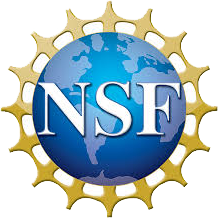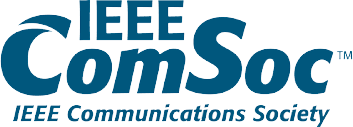08:00—08:15 EDT
Welcome and Opening
Chair: Nakjung Choi (Nokia Bell Labs, USA)
08:15—09:00 EDT
Keynote Session
Title: A perspective to 6G standards from the O-RAN next Generation Research Group (nGRG)
Speaker: Hannu Flinck (Nokia Strategy & Technology, Finland)
Abstract: Global standards ensure interoperability between systems, devices, and services through industry wide consensus on well-defined interfaces and subsystems that can be subjected to common interoperation tests. Such a standardization process for consensus building among vendors and service providers is a prerequisite for materializing economies of scale benefits at a global scale. While the research on 6G enabling technologies is expected to continue for the next couple of years, the concept drafting is reaching a stage wherein initial architectural views backed up by use cases and system level requirements would benefit from a forum to facilitate the exchange of different research views on a specific scope. For this purpose, the O-RAN Alliance (www.o-ran.org), has established the next Generation Research Group (nGRG) to leverage industry and academic 6G efforts to determine how O-RAN may evolve to support 6G and beyond, considering regional research efforts, ITU-R, and 3GPP development. O-RAN is an industry specification group focusing on the next-generation RAN infrastructure. It is a community of around 200 mobile operators, vendors, and research institutions with a mission to evolve the RAN towards more intelligent, virtualized, and cloud-based network elements with standardized open interfaces. In this talk, an overview of the 6G standardization environment covering ITU, 3GPP, and a special focus on O-RAN nGRG will be provided. It is expected that O-RAN will influence the radio access of the 6G networks. O-RAN nGRG key priorities, research agenda and research streams for 6G will also be discussed.
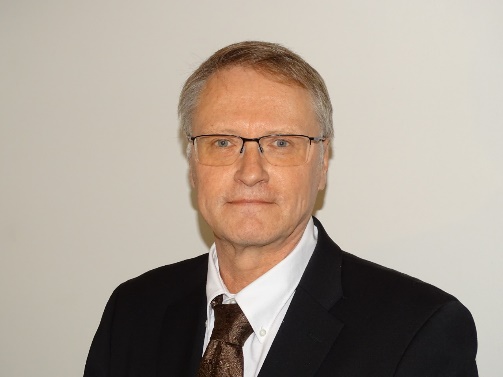 Speaker Biography: Hannu Flinck is a Senior Research Project Manager with Nokia Strategy & Technology, Espoo, Finland. He holds an M.Sc. and Lic. of Tech. degree in Computer Science and Communication Systems from the Helsinki University of Technology (TKK, current Aalto Uni). Earlier he has held multiple research and management roles in Nokia Bell Labs, NSN Technology and Innovation Office and Nokia Research Center— all related to new networking architectures as well as communication protocols. He is an active participant and contributor to the IETF work on transport and mobility management. He has co-authored more than 50 publications. He is currently focusing on 6G enabling technologies and is a key contributor to the related work in O-RAN nGRG and Hexa-X EU project.
Speaker Biography: Hannu Flinck is a Senior Research Project Manager with Nokia Strategy & Technology, Espoo, Finland. He holds an M.Sc. and Lic. of Tech. degree in Computer Science and Communication Systems from the Helsinki University of Technology (TKK, current Aalto Uni). Earlier he has held multiple research and management roles in Nokia Bell Labs, NSN Technology and Innovation Office and Nokia Research Center— all related to new networking architectures as well as communication protocols. He is an active participant and contributor to the IETF work on transport and mobility management. He has co-authored more than 50 publications. He is currently focusing on 6G enabling technologies and is a key contributor to the related work in O-RAN nGRG and Hexa-X EU project.
09:00—10:00 EDT
Panel Session
Title: The Evolution of Programmable Cellular Networks Towards 6G
Panelists: David M. Gutierrez Estevez (Samsung R&D Institute, UK), Gerald Karam (Nokia Bell Labs, USA), Simona Marinova (Bell Canada, Canada), Navid Nikaein (EURECOM, France), and Srinivas Shakkottai (Texas A&M University, USA)
Moderator: Ahan Kak (Nokia Bell Labs, USA)
 Dr. David M. Gutierrez Estevez is Chief Engineer and 3GPP rapporteur at Samsung Electronics R&D Institute UK. David obtained his Engineering Degree in Telecommunications (Hons.) from the Universidad de Granada, Spain, and his M.S. (2011) and Ph.D. (2014) degrees on wireless networks from the Georgia Institute of Technology in Atlanta, GA, USA, under the supervision of Prof. Ian F. Akyildiz. From September 2014 to September 2015, David worked for Huawei Technologies in Silicon Valley on the topic of cloud computing. Previously, David had been with several Fraunhofer Institutes in Germany and with Qualcomm in California for periods ranging from three to fifteen months. In 2016, David joined Samsung and led several large-scale research projects within the 5GPPP ecosystem on 5G RAN, 5G architecture and AI/ML in roles of technical manager and work package leader. Since 2019, David is a member of the Samsung 3GPP delegation in SA2 leading the company’s 5G-Advanced efforts on system support for AI/ML services in the role of co-rapporteur, as well as covering data analytics, localization and ranging topics as SA2 delegate. David’s published work accumulates 1500+ citations and he is the (co-) inventor of 50+ patents and patent applications.
Dr. David M. Gutierrez Estevez is Chief Engineer and 3GPP rapporteur at Samsung Electronics R&D Institute UK. David obtained his Engineering Degree in Telecommunications (Hons.) from the Universidad de Granada, Spain, and his M.S. (2011) and Ph.D. (2014) degrees on wireless networks from the Georgia Institute of Technology in Atlanta, GA, USA, under the supervision of Prof. Ian F. Akyildiz. From September 2014 to September 2015, David worked for Huawei Technologies in Silicon Valley on the topic of cloud computing. Previously, David had been with several Fraunhofer Institutes in Germany and with Qualcomm in California for periods ranging from three to fifteen months. In 2016, David joined Samsung and led several large-scale research projects within the 5GPPP ecosystem on 5G RAN, 5G architecture and AI/ML in roles of technical manager and work package leader. Since 2019, David is a member of the Samsung 3GPP delegation in SA2 leading the company’s 5G-Advanced efforts on system support for AI/ML services in the role of co-rapporteur, as well as covering data analytics, localization and ranging topics as SA2 delegate. David’s published work accumulates 1500+ citations and he is the (co-) inventor of 50+ patents and patent applications.
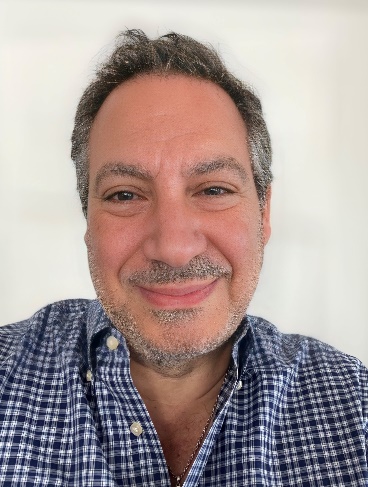 Gerald M. Karam (Senior Member, IEEE) received a BASc (1982) in electrical engineering from University of Ottawa, Ottawa, Canada, and an MASc (1984) and a PhD (1987) from Carleton University, Ottawa, Canada, also in electrical engineering. After graduation, he was on faculty with the Dept. of Systems and Computer Engineering, at Carleton University, leaving in 1995 having the title of Associate Professor (tenured). He joined AT&T Bell Labs in 1995 and over the next 25 years held a variety of roles in AT&T Labs including Executive Director of Research, Distinguished Technical Staff Member, and Assistant Vice President. After retiring from AT&T, in 2019, and a brief stint consulting for CableLabs, he joined Nokia Bell Labs in Murray Hill, New Jersey in 2020 where he is a Senior Principal Researcher – Network Systems. He has 30 issued patents, more than 35 referred publications, and one textbook (Pearson). Current research interests and activities include 6G network systems, communications software architecture, and network services and management technology. Dr. Karam is an AT&T Fellow, and recipient of an AT&T Science and Technology Medal. IEEE recognitions include an IEEE Millennium Medal, IEEE Regional Activities Board Innovation Award.
Gerald M. Karam (Senior Member, IEEE) received a BASc (1982) in electrical engineering from University of Ottawa, Ottawa, Canada, and an MASc (1984) and a PhD (1987) from Carleton University, Ottawa, Canada, also in electrical engineering. After graduation, he was on faculty with the Dept. of Systems and Computer Engineering, at Carleton University, leaving in 1995 having the title of Associate Professor (tenured). He joined AT&T Bell Labs in 1995 and over the next 25 years held a variety of roles in AT&T Labs including Executive Director of Research, Distinguished Technical Staff Member, and Assistant Vice President. After retiring from AT&T, in 2019, and a brief stint consulting for CableLabs, he joined Nokia Bell Labs in Murray Hill, New Jersey in 2020 where he is a Senior Principal Researcher – Network Systems. He has 30 issued patents, more than 35 referred publications, and one textbook (Pearson). Current research interests and activities include 6G network systems, communications software architecture, and network services and management technology. Dr. Karam is an AT&T Fellow, and recipient of an AT&T Science and Technology Medal. IEEE recognitions include an IEEE Millennium Medal, IEEE Regional Activities Board Innovation Award.
 Simona Marinova is a Solution Architect at Bell Canada. In this role, she is involved in strategy planning on end-to-end network slicing for 5G, including the development of new architectures and proof of concept validations. She is currently focused on intelligence aspects in all the network domains, especially opportunities brought by Open RAN. Simona is currently pursuing her PhD degree at the Department of Electrical and Computer Engineering at the University of Toronto.
Simona Marinova is a Solution Architect at Bell Canada. In this role, she is involved in strategy planning on end-to-end network slicing for 5G, including the development of new architectures and proof of concept validations. She is currently focused on intelligence aspects in all the network domains, especially opportunities brought by Open RAN. Simona is currently pursuing her PhD degree at the Department of Electrical and Computer Engineering at the University of Toronto.
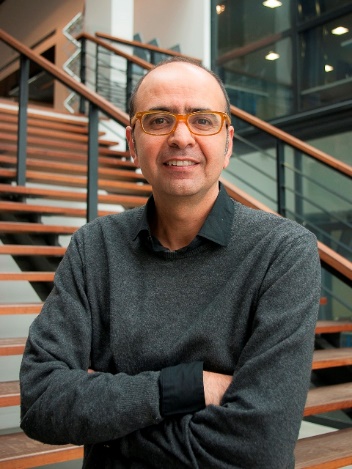 Navid Nikaein is the founder and CEO of BubbleRAN and a Professor in the Communication Systems Department at Eurecom, France. At BubbleRAN, he is helping organizations to seamlessly build, customize, and operate their private 4G/5G networks by consolidating open RAN architecture and cloud-native 4G/5G deployment to offer greater flexibility, scalability and performance. At Eurecom, he is leading a R&D group on experimental 4G/5G system research for use-cases found in private 5G. He is the founder of Mosiac5G, co-founder of OpenAirInterface, and a board member of OpenAirInterface Software Alliance
Navid Nikaein is the founder and CEO of BubbleRAN and a Professor in the Communication Systems Department at Eurecom, France. At BubbleRAN, he is helping organizations to seamlessly build, customize, and operate their private 4G/5G networks by consolidating open RAN architecture and cloud-native 4G/5G deployment to offer greater flexibility, scalability and performance. At Eurecom, he is leading a R&D group on experimental 4G/5G system research for use-cases found in private 5G. He is the founder of Mosiac5G, co-founder of OpenAirInterface, and a board member of OpenAirInterface Software Alliance
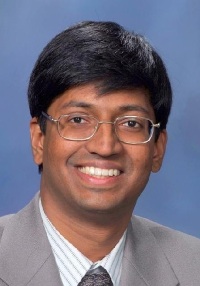 Srinivas Shakkottai received his PhD in Electrical and Computer Engineering from the University of Illinois at Urbana-Champaign in 2007, after which he was a postdoctoral scholar in Management Science and Engineering at Stanford University. He joined Texas A&M University in 2008, where he is currently a professor at the Dept. of Electrical and Computer Engineering and at the Dept. of Computer Science and Engineering (by courtesy). His research interests include multi-agent learning and game theory, reinforcement learning, communication and information networks, networked markets, as well as data collection and analytics. He co-directs the Learning and Emerging Network Systems (LENS) laboratory and the RELLIS Spectrum Innovation Laboratory (RSIL) at Texas A&M University. He serves as an Associate editor of IEEE/ACM Transactions on Networking. Srinivas is the recipient of the Defense Threat Reduction Agency Young Investigator Award (2009) and the NSF Career Award (2012), as well as research awards from Cisco (2008) and Google (2010). He also received an Outstanding Professor Award (2013), the Select Young Faculty Fellowship (2014), and the Engineering Genesis Award (2019) at Texas A&M University.
Srinivas Shakkottai received his PhD in Electrical and Computer Engineering from the University of Illinois at Urbana-Champaign in 2007, after which he was a postdoctoral scholar in Management Science and Engineering at Stanford University. He joined Texas A&M University in 2008, where he is currently a professor at the Dept. of Electrical and Computer Engineering and at the Dept. of Computer Science and Engineering (by courtesy). His research interests include multi-agent learning and game theory, reinforcement learning, communication and information networks, networked markets, as well as data collection and analytics. He co-directs the Learning and Emerging Network Systems (LENS) laboratory and the RELLIS Spectrum Innovation Laboratory (RSIL) at Texas A&M University. He serves as an Associate editor of IEEE/ACM Transactions on Networking. Srinivas is the recipient of the Defense Threat Reduction Agency Young Investigator Award (2009) and the NSF Career Award (2012), as well as research awards from Cisco (2008) and Google (2010). He also received an Outstanding Professor Award (2013), the Select Young Faculty Fellowship (2014), and the Engineering Genesis Award (2019) at Texas A&M University.
10:00—10:30 EDT
Virtual Coffee Break
10:30—12:00 EDT
Technical Session 1: Machine Learning and Resource Optimization for 6G RANs
Chair: Tao Han (New Jersey Institute of Technology, USA)
Developing xApps for Rogue Base Station Detection in SDR-Enabled O-RAN
Jun-Hong Huang (National Taiwan University of Science and Technology, Taiwan), Shin-Ming Cheng (National Taiwan University of Science and Technology & Academia Sinica, Taiwan), Rafael Kaliski (National Sun Yat-Sen University, Taiwan), and Cheng-Feng Hung (National Taiwan University of Science and Technology, Taiwan)
Intelligent Cellular Traffic Prediction in Open-RAN Based on Cross-Domain Data Fusion Zihao Xiong, Kaisa Zhang, Gang Chuai, Xu Yang, and Yichao Xu (Beijing University of Posts and Telecommunications, China)
Time-varying Real-time Online Multi-Resource Allocation for Scaling the Slices and VNF Isolation
Akbar Majidi (Trinity College Dublin, Ireland), Nazila Jahanbakhsh (Shanghai Jiao Tong University, China & Islamic Azad University, Iran), and Siobhan Clarke (Trinity College Dublin, Ireland)
Sum-Rate Maximization for Active RIS-Aided Downlink RSMA System
Xinhao Li (Beijing University of Posts and Telecommunications, China), Tao Wang (Beijing University of Posts and Telecommunications, China), Haonan Tong (Beijing University of Posts and Telecommunications, China), Zhaohui Yang (Zhejiang University, China), Yijie Mao (ShanghaiTech University, China), and Changchuan Yin (Beijing University of Posts and Telecommunications, China)
12:00—14:00 EDT
Virtual Lunch Break
14:00—15:30 EDT
Technical Session 2: System-level Solutions for Open RANs
Chair: Mikel Irazabal (OpenAirInterface Software Alliance, France)
Positioning and Dynamic Tracking under 3GPP Cellular Network on GNURadio Testbed
Shunyu Chang (Beijing University of Posts and Telecommunications, China), Zhaoming Lu (Beijing University of Posts and Telecommunications, China), Xinghe Chu (Beijing University of Posts and Telecommunications, China), Di Zhang (Zhengzhou University, China), Luhan Wang (Beijing University of Posts and Telecommunications, China), and Xiangming Wen (Beijing University of Posts and Telecommunications, China)
Demystifying the Near-real Time RIC: Architecture, Operations, and Benchmarking Insights
Huu-Trung Thieu, Van-Quan Pham, Ahan Kak, and Nakjung Choi (Nokia Bell Labs, USA)
5GECO: A Cross-domain Intelligent Neutral Host Architecture for 5G and Beyond
Joao Francisco Nunes Pinheiro (University of Antwerpen & IMEC, Belgium), Chia-Yu Chang (Nokia Bell Labs, Belgium), Tom Collins (Citymesh, Belgium), Eric Smekens (Citymesh, Belgium), Revaz Berozashvili (Accelleran, Belgium), Adnan Shahid (Gent University - imec, Belgium), Danny De Vleeschauwer (Nokia Bell Labs, Belgium), Paola Soto (Universiteit Antwerpen - imec, Belgium), Ingrid Moerman (Ghent University - imec, Belgium), Johann Marquez-Barja (University of Antwerpen & imec, Belgium), Jens Buysse (Citymesh, Belgium), Miguel Camelo (University of Antwerp - imec, Belgium)
O-RAN and RIC compliant solutions for Next Generation Networks
Marco Silva (University of Coimbra, Portugal), Joao Pedro Fonseca (Capgemini Engineering, Portugal), David Perez Abreu (University of Coimbra, Portugal), Paulo Martins (Capgemini Engineering, Portugal), Paulo Duarte (Capgemini Engineering, Portugal), Raul Barbosa (Capgemini Engineering, Portugal), Bruno Mendes (University of Aveiro, Portugal), Joao Silva (Capgemini Engineering, Portugal), Adriano Goes (Capgemini Engineering, Portugal), Marco Araujo (Capgemini Engineering, Portugal), Bruno Sousa (University of Coimbra, Portugal), Marilia Curado (University of Coimbra, Portugal), and Jose Santos (University of Coimbra, Portugal)
15:30—16:00 EDT
Virtual Coffee Break
16:00—17:30 EDT
Technical Session 3: Non-terrestrial Integration and Posters
Chair: Qiang Liu (University of Nebraska-Lincoln, USA)
SPELS: Scalable and Programmable Testbed for Evaluating LEO Satellite Swarm Communications
Venkata Srirama Rohit Kantheti (North Carolina State University, USA), Shih-Chun Lin (North Carolina State University, USA), and Liang C. Chu (Lockheed Martin Space Systems Company, USA)
SFC Deployment in Space-Air-Ground Integrated Networks Based on Matching Game
Yilu Cao (Nanjing University of Aeronautics and Astronautics, China), Ziye Jia (Nanjing University of Aeronautics and Astronautics, China), Chao Dong (Nanjing University of Aeronautics and Astronautics, China), Yanting Wang (Northwesten Polytechnical University, China), Jiahao You (Nanjing University of Aeronautics and Astronautics, China), and Qihui Wu (Nanjing University of Aeronautics and Astronautics, China)
Detection and mitigation of indirect conflicts between xApps in Open Radio Access Networks
Cezary Adamczyk and Adrian Kliks (Poznan University of Technology, Poland)
Implementing an Open 5G Standalone Testbed: Challenges and Lessons Learnt
Maryam Amini, Ahmed El-Ashmawy, and Catherine Rosenberg (University of Waterloo, Canada)
Towards a Scalable 5G RAN Central Unit
Cuidi Wei (George Washington University, USA), Ahan Kak (Nokia Bell Labs, USA), Nakjung Choi (Nokia Bell Labs, USA), and Timothy Wood (George Washington University, USA)
Signaling Storm Detection in IIoT Network based on the Open RAN Architecture
Marcin Hoffmann and Pawel Kryszkiewicz (Poznan University of Technology and Rimedo Labs, Poland)
17:30—18:00 EDT
Awards and Closing
Chair: Tao Han (New Jersey Institute of Technology, USA)






